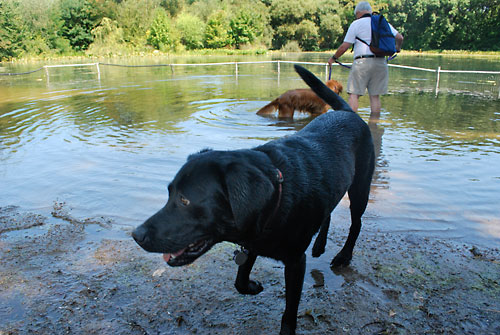Here’s a message for dogs taking a dip in a popular pond in Prospect Park: Don’t drink the water.
Prospect Park’s Dog Beach, where hundreds of dogs cool off each day, has become a haven for disease-ridden rats whose bacteria-laden feces and urine could kill the canines.
The problem, health experts say, is that rats are known to be carriers for leptospitosis, a potentially fatal disease that damages the liver and kidneys of both humans and animals, and has been labeled the “most widespread [animal-transmitted] disease in the world” by the Center for Disease Control.
Pets become infected when they come in contact with bodily tissues or fluids from a diseased animal — something not that hard to do with sick rodents urinating in Dog Beach on a daily basis.
“In humans, this mostly causes a short-term flu-like illness. In fact, most people don’t even know they’re infected,” said CDC spokesman Shawn Shadomy. “But there are over 200 strains, each targeting a specific type of animal.”
Shadomy added that areas like the beach are prime targets for the disease: nearby rainwater can wash in infected urine on the ground, rodents can defecate in the pool itself, and the bacteria is hearty enough to survive in damp areas.
After complaints by Park Slopers this week, Parks Department workers put poisoned bait in the rats’ nests.
“The rats come out in full force in the summer,” said Bob Ipcar, a member of FIDO Prospect Park, a dog-owners group. “With all the picnics over the weekend, you dread coming here with your dog on Monday.”
Dog Beach is about 300 yards from the Picnic House.
Four dogs contracted serious cases last year, leading to one death, according to FIDO President Anthony Chiappelloni.
But few dog owners playing on the beach knew anything about leptospitosis.
On hearing the news, Arcell Cabug, with his dog Ashitaki, said, “I’m never going to let him in the water now.”
Glynn Sullivan, out walking his dog Zora, had also never heard of the deadly disease, but remained unfazed.
“She eats s— in the street,” he said. “That’s probably going to kill her too.”

























